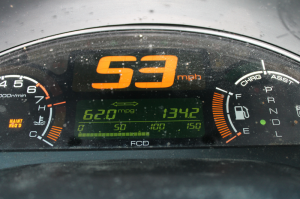 Oregon is launching the first-in-the-nation program that aims to tax drivers per mile and not for the fuel they use.
Oregon is launching the first-in-the-nation program that aims to tax drivers per mile and not for the fuel they use.
According to a recent research, the combined impact of increased fuel efficiency standards and the increasing popularity of fuel efficient, hybrid and electric cars will result in approximately 18 percent less revenue for roads and bridge projects per year by 2016. While considering alternative ways to enhance the revenue, some states are looking at introducing a vehicle miles traveled tax (VMT tax).
The idea of pay-per-mile road tax has been discussed and criticized, even rejected for many years. Oregon was the first state in the U.S. that had passed legislation and the only state that is about to actually test-drive the VMT tax system. The program, called OreGo, is on a voluntary basis and will start July 1, 2015. 5,000 volunteers in Oregon can sign up to join the program. Those participating will agree to drive with devices that collect data on how much they have driven and where. They will pay 1.5 cents for each mile traveled on public roads within Oregon, as well as out of state. Participants will still be paying the fuel tax if they stop for gas, but at the end of the month, the state will reimburse them for the difference between the mileage tax and the traditional fuel tax. Volunteers would be able to opt out of the program at any time.
However, some green car owners say the program is discriminatory and unfair to them as it targets hybrid and electric vehicles and it would discourage people purchasing fuel-efficient, low-polluting vehicles because those would be taxed as the traditional ones. On the other hand, state officials claim it is fair for green vehicle owners to be charged for maintaining roads and highways just as owners of traditional gasoline-powered vehicles do.